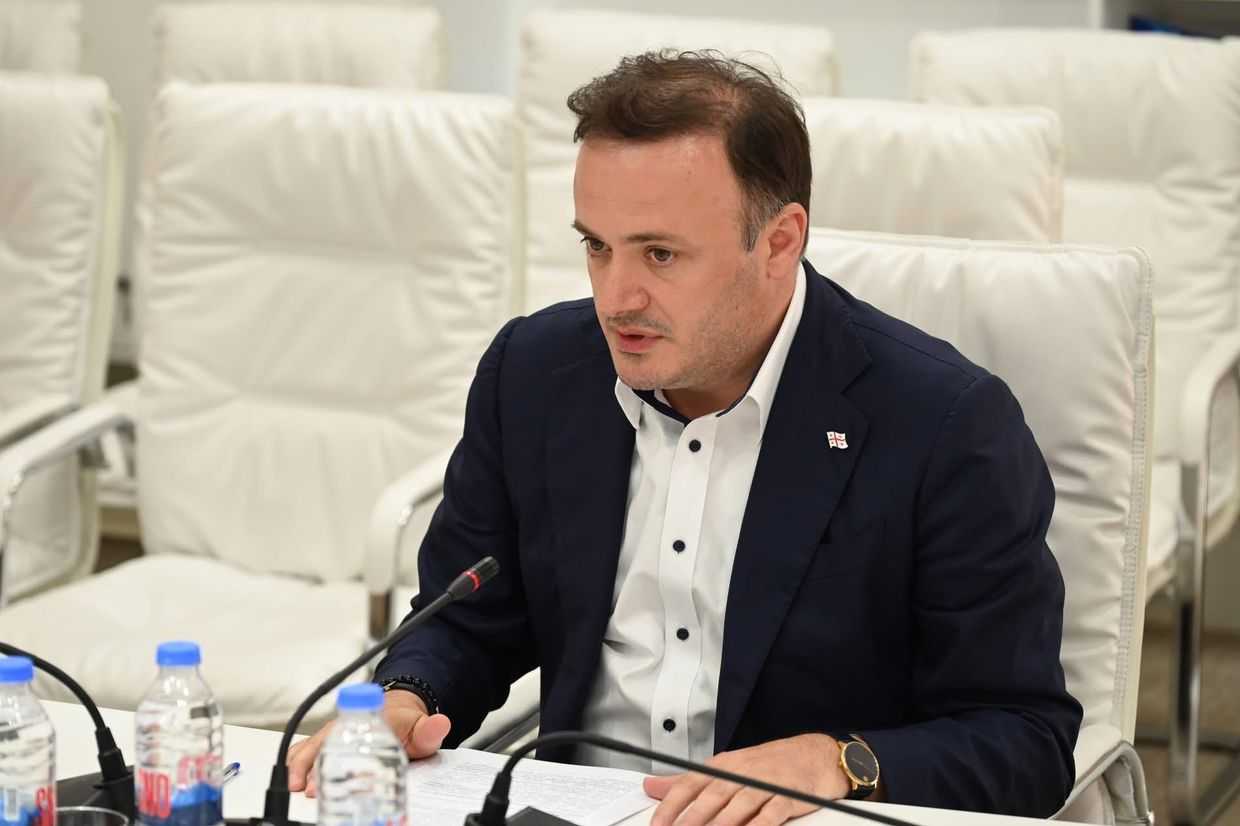
Former Georgian President Mikheil Saakashvili has been transferred in the early hours of the morning from the Gori military hospital back to prison in Rustavi.
The former president was transferred early on Thursday morning, two days after he was formally discharged by doctors.
After secretly returning to Georgia and being detained on 1 October, Saakashvili was originally placed at the Rustavi facility, before being moved first to a prison hospital in Gldani and then to Gori due to a hunger strike.
He is serving a six-year prison term for abuse of power during his rule as President in 2004–2013, and faces three similar criminal cases.
[Read more: The 2007 crackdown — Saakashvili’s greatest mistake?]
Riot police and water cannons were deployed outside the 12th Prison in Rustavi on Thursday morning as a small number of Saakashvili’s supporters gathered outside.
Days before his transfer, Georgian Justice Minister Rati Bregadze warned that if the former president renewed his hunger strike, he would be placed in the Gldani prison again.
After beginning his hunger strike, Saakashvili was first placed at a medical facility under the 18th prison in the Gldani district of Tbilisi where he continued his protest. Following allegations of mistreatment and inadequate medical care, on 20 November the authorities transferred him to Gori Military Hospital, where he had been recovering from his 50-day hunger for a little over a month.
As of Thursday, Saakashvili’s United National Movement party claimed that hundreds of his supporters are on their 10th day of hunger strike demanding the former president’s freedom.
Disputed discharge
Hours before Saakashvili’s transfer to Rustavi prison, Saba Brachveli from the Public Defender’s Office told media that the former president had been diagnosed with yet another condition that he abstained to specify.
Brachveli also confirmed reports that on 29 December, prison authorities denied access to Saakashvili to experts from a group formed by the Public Defender’s Office.
The penitentiary authorities initially attempted to transfer him from Gori on 27 December but postponed this after his health deteriorated while he resisted the move.
Reports of his condition after the 27 December incident have been contradictory. The Justice Ministry and their subagency, the Special Penitentiary Service, have downplayed claims by Saakashvili’s representatives of his deteriorating health.
On 28 December, one of Saakashvili’s lawyers, Nika Gvaramia, accused his attending physician, Nino Gogorishvili, of ‘condemning Saakashvili to death’ by confirming the former president could be discharged from hospital without, according to Gvaramia, proper medical examinations.
Soon after, Gogorishvili accused Gvaramia, who also heads opposition leaning TV channel Mtavari, of ‘traumatising’ her. She said that her own health had deteriorated as a result and announced that she would no longer be in charge of overseeing Saakashvili’s health.

Ukraine’s Foreign Ministry quickly commented on the 27 December incident calling it ‘inappropriate’ as his lawyers had not been informed about it in advance. The foreign service of Georgia’s strategic partner country reiterated they were working on seeking Saakashvili’s transfer to Ukraine to facilitate his recovery.
Saakashvili is a former governor of Ukraine’s Odesa region (2015–2017) whose Ukrainian citizenship was reinstated in 2019.
Allegations of mistreatment
Georgian anti-torture watchdog group Empathy have also maintained that Saakashvili needs proper and complex recovery even in a less restrictive environment than in a Gori hospital. They swiftly condemned his latest nighttime transfer to Rustavi prison and an earlier attempt at this by prison guards.
On 19 December, Empathy reported that the Gori hospital was inadequate for his rehabilitation from ‘neuro-psychological disorders’.
They warned that in addition to Wernicke Encephalopathy that followed his hunger strike, and post-traumatic stress disorder after his stay at Gldani Prison, Saakashvili faced a ‘high risk’ of developing Korsakoff syndrome, a chronic memory disorder caused by a deficiency in Vitamin B1.
Earlier, footage of his forced removal from Rustavi Prison to Gldani on 8 November that was released by the authorities triggered a wave of condemnation by human rights groups claiming it intended to degrade him publicly.
A probe into possible ill-treatment during Saakashvili’s earlier transfer is still pending from State Inspector Londa Toloraia.
Toloraia, who heads an independent state watchdog, is currently facing dismissal. A bill was tabled by the ruling party that would effectively remove her from office shortly after her office found the authorities at fault for over-publicising Saakashvili’s food intake and violent transfer to Gldani prison.
[Read more on OC Media: Georgian authorities move to ‘abolish’ crucial check on official abuses]







